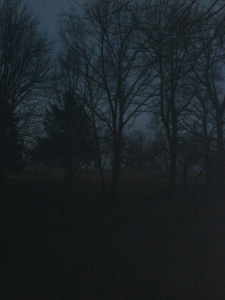Gently place one spoonful of the ground coffee, electrified with the aroma of cardamom, on the rippling surface of the hot water, then stir slowly, first clockwise, then up and down. Add the second spoonful and stir up and down, then counterclockwise. Now add the third. Between spoonfuls, take the pot away from the fire and bring it back. For the final touch, dip the spoon in the melting powder, fill and raise it a little over the pot, then let it drop back. Repeat this several times until the water boils again and a small mass of the blond coffee remains on the surface, rippling and ready to sink. Don’t let it sink. Turn off the heat, and pay no heed to the rockets. Take the coffee to the narrow corridor and pour it lovingly and with a sure hand into a little white cup: dark-colored cups spoil the freedom of the coffee. Observe the paths of the steam and the tent of rising aroma. Now light your first cigarette, made for this cup of coffee, the cigarette with the flavor of existence itself, unequaled by the taste of any other except that which follows love, as the woman smokes away the last sweat and the fading voice.
Now I am born. My veins are saturated with their stimulant drugs, in contact with the springs of their life, caffeine and nicotine, and the ritual of their coming together as created by my hand. “How can a hand write,” I ask myself, “if it doesn’t know how to be creative in making coffee!” How often have the heart specialists said, while smoking, “Don’t smoke or drink coffee!” And how I’ve joked with them, “A donkey doesn’t smoke or drink coffee. And it doesn’t write.”
I know my coffee, my mother’s coffee, and the coffee of my friends. I can tell them from afar and I know the differences among them. No coffee is like another, and my defense of coffee is a plea for difference itself. There’s no flavor we might label “the flavor of coffee” because coffee is not a concept, or even a single substance. And it’s not an absolute. Everyone’s coffee is special, so special that I can tell one’s taste and elegance of spirit by the flavor of the coffee. Coffee with the flavor of coriander means the woman’s kitchen is not organized. Coffee with the flavor of carob juice means the host is stingy. Coffee with the aroma of perfume means the lady is too concerned with appearances. Coffee that feels like moss in the mouth means its maker is an infantile leftist. Coffee that tastes stale from too much turning over in the hot water means its maker is an extreme rightist. And coffee with the overwhelming flavor of cardamom means the lady is newly rich.
No coffee is like another. Every house has its coffee, and every hand too, because no soul is like another. I can tell coffee from far away: it moves in a straight line at first, then zigzags, winds, bends, sighs, and turns on flat, rocky surfaces and slopes; it wraps itself around an oak, then loosens and drops into a wadi, looks back, and melts with longing to go up the mountain. It does go up the mountain as it disperses in the gossamer of a shepherd’s pipe taking it back to its first home.
The aroma of coffee is a return to and a bringing back of first things because it is the offspring of the primordial. It’s a journey, begun thousands of years ago, that still goes on. Coffee is a place. Coffee is pores that let the inside seep through to the outside. A separation that unites what can’t be united except through its aroma. Coffee is not for weaning. On the contrary, coffee is a breast that nourishes men deeply. A morning born of a bitter taste. The milk of manhood. Coffee is geography.
Mahmoud Darwish, from Memory for Forgetfulness. August, Beirut, 1982. Translated from the Arabic by Ibrahim Muhawi. Berkeley: U. of California Press, 1995, pp. 18-20. This is just one of the passages on coffee from this memoir by the great Palestinian poet, who died last year.
